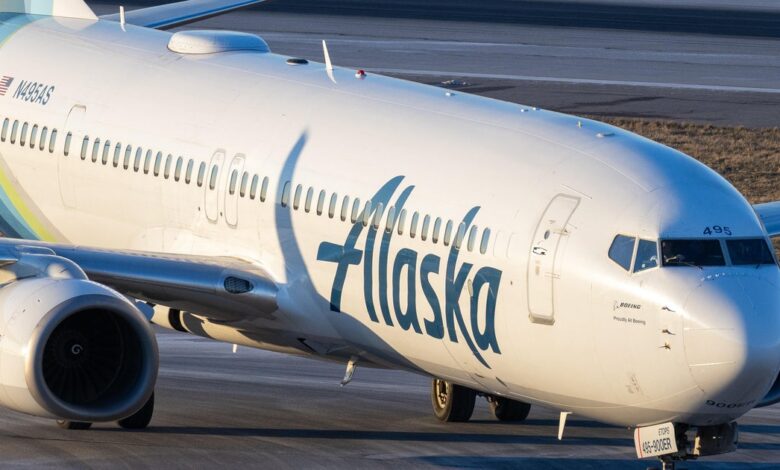Tariffs are causing Alaska Airlines to cancel flights. Here’s why.

Alaska Airlines is facing challenges due to tariffs that are hindering its ability to accept delivery of new aircraft, leading to the cancellation of more than a dozen flights a day. The airline, based in Seattle, Washington, has made the decision to not immediately accept delivery of two Embraer 175 regional jets in order to avoid incurring additional tariff-related costs. These aircraft were intended to serve Horizon Air, a regional subsidiary of Alaska Airlines.
President Trump’s tariff agenda has caused disruptions in supply chains across various industries, prompting companies to raise prices to offset the impact on their margins. The aviation industry has also expressed concerns about how these levies will affect their operations.
Alaska Airlines expressed regret over the impact this situation will have on its passengers during the summer months. The airline emphasized its focus on controlling costs, productivity, and operational performance amidst the uncertain economic environment. As part of its cost-saving efforts, Alaska has decided not to accept additional costs imposed by tariffs in its supply chain.
As a result of not receiving the new aircraft, Alaska has had to cancel 14 flights per day until the end of July. Horizon Air operates all its flights using Embraer jets, while Alaska operates an all-Boeing fleet. The delayed aircraft were originally scheduled to arrive from Brazil in May, with Brazilian imports to the U.S. subject to a 10% tariff since April.
In a similar move to avoid tariff payments on new aircraft, Delta Air Lines arranged for new Airbus A350 planes to be delivered from France to Japan before flying them internationally and then bringing them to the U.S. This strategy allowed Delta to circumvent tariffs on the aircraft.
The affected routes for Alaska Airlines include those served by multiple flights, ensuring that no single route is entirely eliminated, even temporarily. The airline stated that the decision to cancel flights was made with passengers in mind, and efforts are being made to reaccommodate affected travelers on alternative flights.
It is clear that the impact of tariffs on the aviation industry is significant, with airlines like Alaska Airlines having to navigate challenges to maintain their operations and serve their customers effectively. The disruptions caused by tariffs highlight the complexities and ripple effects of trade policies on various sectors of the economy.





